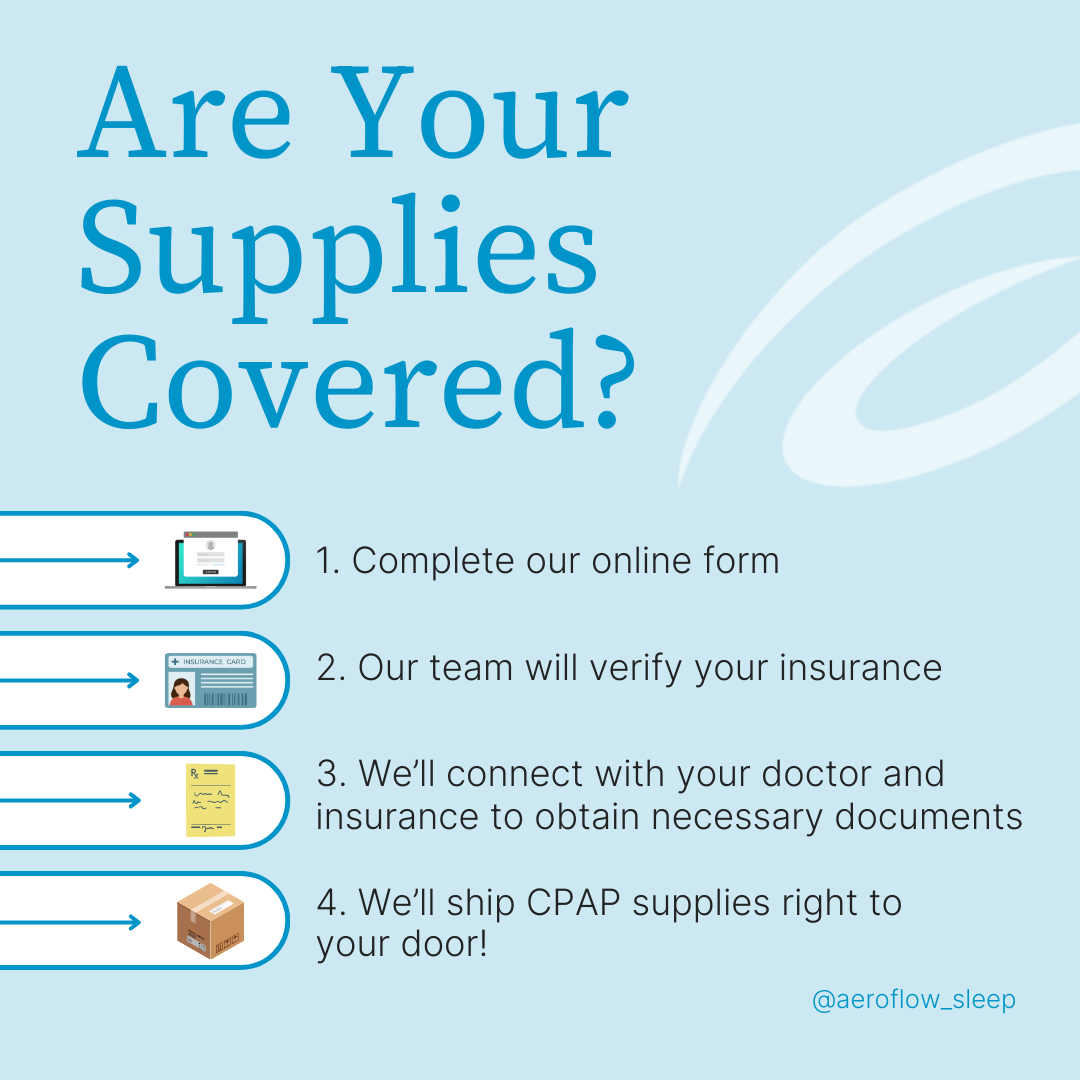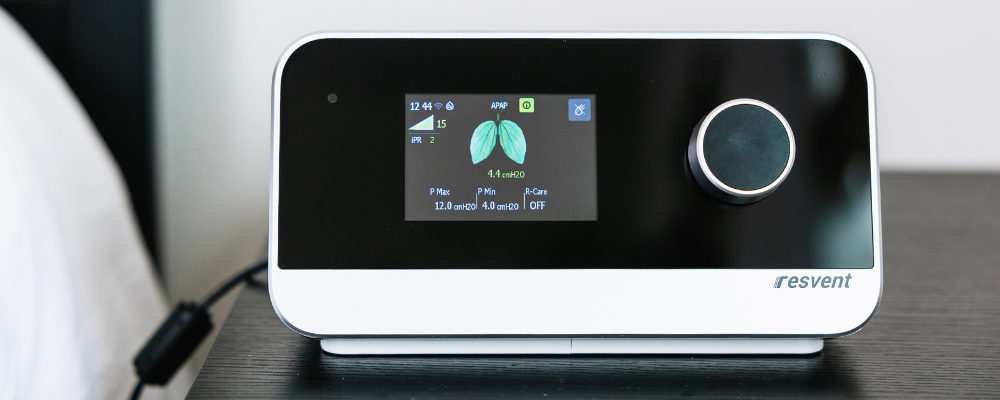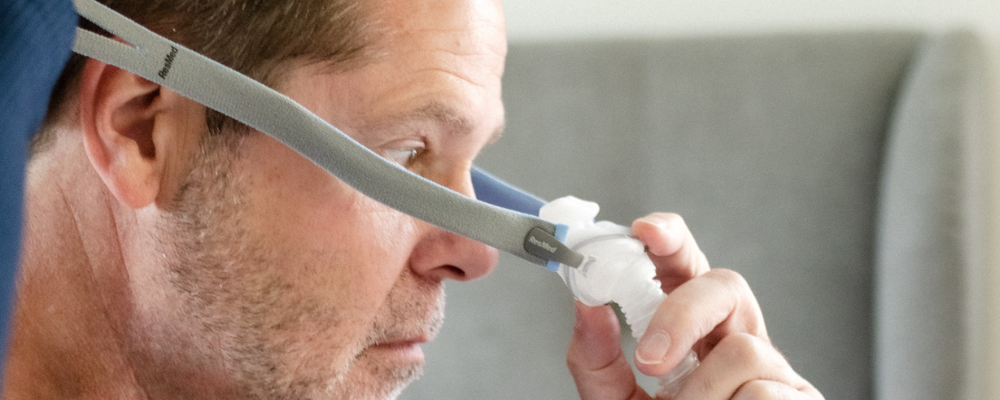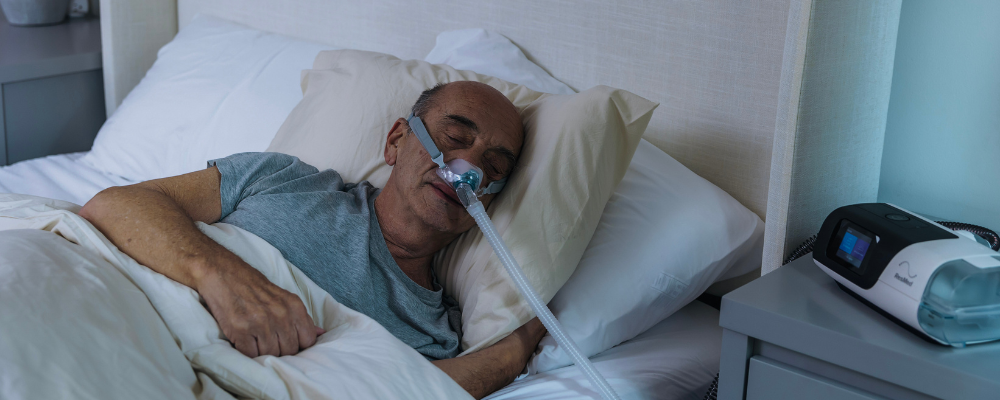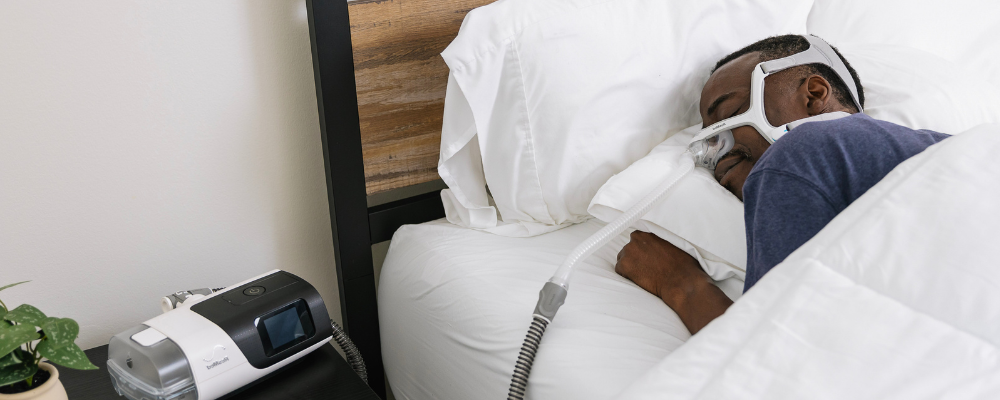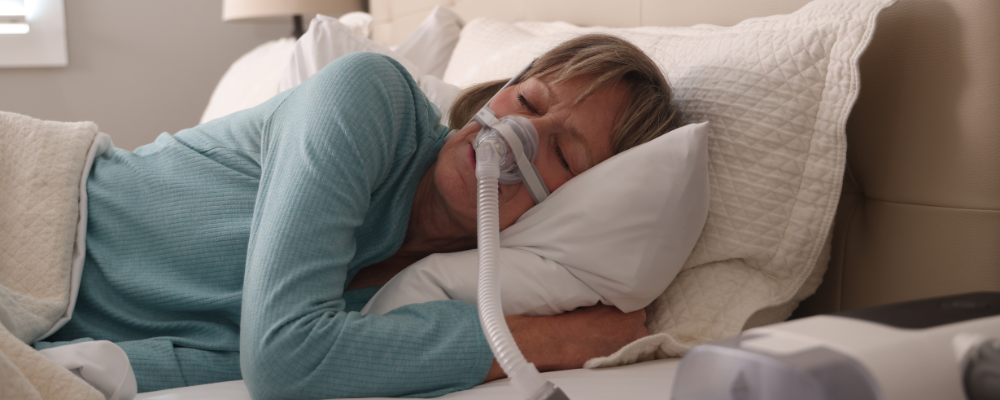Continuous positive airway pressure, or CPAP therapy, is the most common treatment option for obstructive sleep apnea (OSA.) If you are a regular CPAP user, you may think, “I’ll be fine without my CPAP for just a couple of nights while traveling.” Think again! It is proven that just one night without your CPAP can reverse your sleep therapy progress and reactivate your sleep apnea symptoms.
This means that, no matter the adventure, it’s important to bring your trusted CPAP device along with you. But can you travel with your standard machine? Or, do you need a special “travel CPAP?” We’ll answer these questions and more, giving you the information you need to decide if a travel CPAP is worth it for you (or not.)
What Is A Travel CPAP Machine?
For starters, to answer the question, what is a travel CPAP machine, what we’re really asking is: what’s the difference between a travel CPAP machine and a standard CPAP machine? Well, the main difference is the size and weight of the machine. Travel CPAP machines are much smaller, lightweight, and they are designed to be used on the go. Most travel CPAPs also offer travel-related benefits; like these four:
1. Automatic Altitude Adjustment
If you are using your CPAP in-flight or traveling to a location of a higher or lower elevation, your air pressure may be impacted. Many travel CPAPs will automatically adjust your pressure as your altitude changes to counteract this.
2. CPAP And APAP All In One
Many portable CPAP machines are Auto CPAP machines (or APAPs.) This means that your machine will automatically adjust your pressure within a certain range of settings based on changes in your breathing pattern. Keep in mind that your pressure ranges must be set by your doctor or Aeroflow Sleep Specialist.
3. Adaptable Power Sources
Some travel machines offer a variety of different ways to charge your CPAP battery; including phone chargers, battery packs, or solar panels.
4. Portable Humidifer, Waterless Humidification
Many travel CPAPs require little to no water for your humidifier. This alleviates the stress of having to pack (or find) distilled water while traveling.
How Much Is A Travel CPAP Machine?
Travel CPAPs usually cost anywhere between $480 to $1,050. Unfortunately, travel CPAPs are often considered a luxury; not a necessity, so they are not typically covered by health insurance. However, your policy may cover one if it qualifies as your primary machine.
Additionally, travel CPAP machines are usually FSA/HSA eligible. If you have questions, your Aeroflow Sleep Specialist can work with your insurance provider to let you know exactly what your plan will cover. Call us at 1-800-480-5491 to discuss.
What Are The Best Travel CPAP Machines?
If you think you do need a travel CPAP machine, here are the best options:
ResMed AirMini
This travel CPAP machine weighs less than 1 lb, and it includes multiple therapy modes; such as CPAP, AutoSet, and AutoSet For Her. Tiny but mighty, it has features like “AutoRamp,” which gradually increases your pressure as you fall asleep, and “Expiratory Pressure Relief,” which reduces pressure as you exhale to improve comfort. It also offers control settings via the AirMini smartphone app.
There is one catch: the ResMed AirMini is only compatible with certain ResMed CPAP masks, specifically their AirTouch and AirFit series, but there are several options available; including full-face masks, nasal masks, and nasal pillow masks.
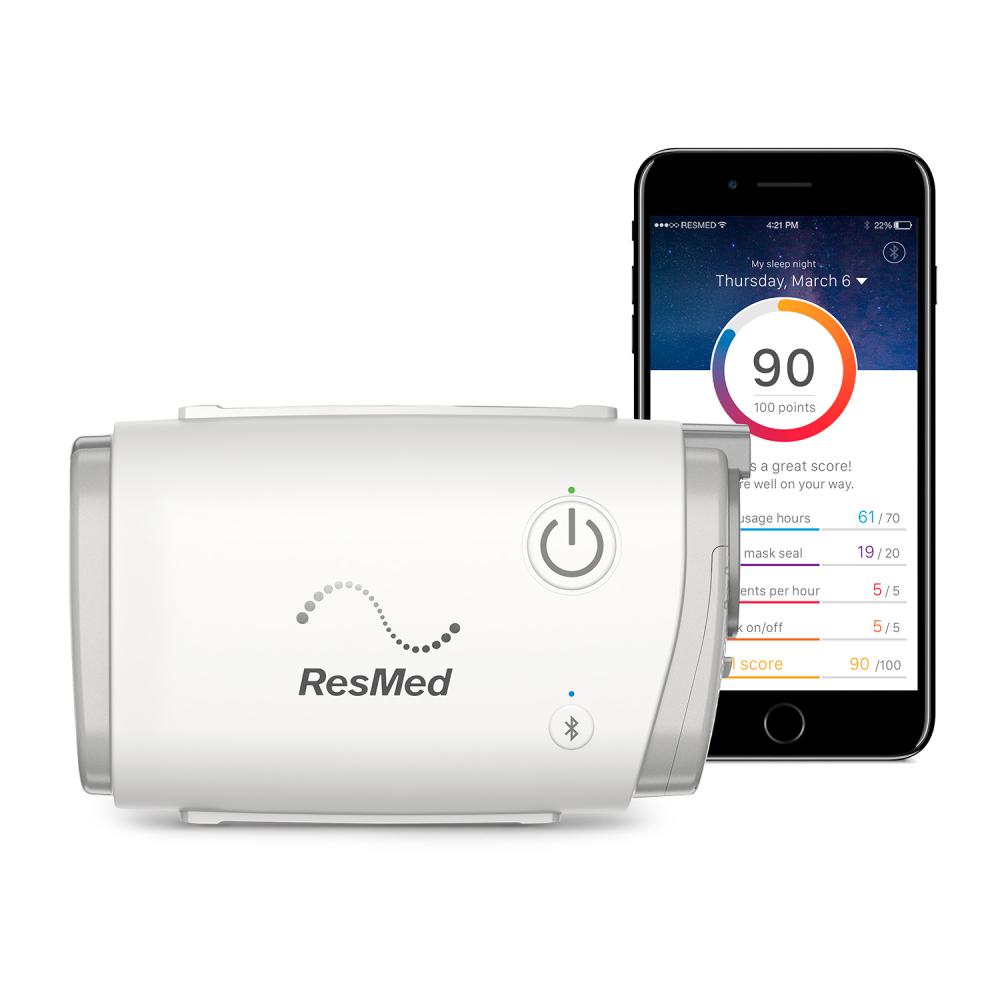

Breas Z2 Travel Auto
The Breas Z2 Auto offers several comfort features, a built-in extended life battery, access to the “Nitelog'' smartphone app to monitor your treatment progress, and more. The good thing here is that it works with most CPAP masks and tubing. In addition to all of these features, it is FAA-compliant for in-flight use and can act as an APAP machine.
Transcend Micro Auto
This Auto CPAP offers its own unique benefits; like a drying mode, which dries any leftover moisture in its overall appliance. Plus, it comes with a portable battery and a backup power supply. It also even boasts that “any CPAP Mask” is compatible with this travel CPAP.
What Is The Best Way To Travel With A CPAP Machine?
The best way to travel with a CPAP machine is totally up to you. If you want to roll the dice and invest in a travel CPAP based on what we’ve told you so far, by all means! But if you don’t want to purchase a travel CPAP, no problem! You can travel with your standard-size PAP machine and use the travel case that comes with it.
Just remember when packing to bring extra PAP supplies—like headgear and fresh, disposable filters, a copy of your prescription, an extension cord, and a power adapter; such as a DC converter. All of these items will set you up for success whether you’re traveling by bus, boat, train, or plane.
Speaking of planes, by law, airlines cannot count your CPAP, APAP, or BiPAP machine as your carry-on item. Since it is a medical device, you may bring your CPAP supplies in a travel bag alongside your personal carry-on item. However, before flying, verify that your CPAP’s battery is FAA-approved. Most modern machines are, but it’s still important to double check.
Looking for more tips on flying with your standard CPAP? Check out our free Traveling with CPAP Guide.
How Aeroflow Sleep Can Help You Travel With CPAP
While Aeroflow Sleep exclusively specializes in providing PAP supplies through insurance, we are still able to help as you prepare for traveling with your CPAP, which you may be eligible to get covered through insurance. We can also help supply you with extra CPAP accessories, either out of pocket or through insurance, which will work both while traveling and at home. See if you qualify for new supplies through insurance today; it only takes 5-7 minutes!
References
Kribbs, N B et al. “Effects of one night without nasal CPAP treatment on sleep and sleepiness in patients with obstructive sleep apnea.” The American review of respiratory disease vol. 147,5 (1993): 1162-8. doi:10.1164/ajrccm/147.5.1162
Podberesky, Samuel. “THE USE OF PASSENGER-SUPPLIED ELECTRONIC RESPIRATORY ASSISTIVE DEVICES ON AIRCRAFT .” U.S. Department of Transportation, Office of the Secretary: Washington D.C., 28 Oct. 2009, www.transportation.gov/sites/dot.gov/files/docs/mission/transportation-policy/permittingcenter/337371/feis-rod-guidance-final-04302019.pdf.



